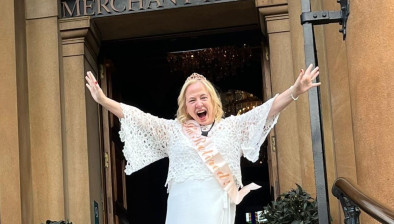High Court: Borrower succeeds on appeal of Circuit Court order for possession

The High Court has determined that the Circuit Court did not have jurisdiction to make an order for possession as the appellant did not come within s.3(1) of the Land and Conveyancing Law Reform Act 2013.

About this case:
- Citation:[2024] IEHC 473
- Judgment:
- Court:High Court
- Judge:Ms Justice Marguerite Bolger
Delivering judgment for the High Court, Ms Justice Marguerite Bolger stated: “Section 3(1) has been interpreted as not applying where both spouses are party to the conveyance, an interpretation of the Supreme Court (in Nestor v. Murphy) that has been in place for many years. Had the legislature wished to include a situation such as pertains here in s. 3(1) of the 2013 Act, where a spouse who is not a mortgagor but is party to a conveyance of a family home as a joint owner, then they would have done so clearly. They did not.”
Rudi Neuman BL appeared for the plaintiff, and Jason Shannon BL appeared for the second defendant/appellant.
Background
On 14 March 2019, the Circuit Court made an order for possession of lands in Co Louth. At that time, the second defendant appeared as a litigant in person. The first defendant resided in Northern Ireland.
Having obtained legal representation, the second defendant appealed the order contending that the Circuit Court did not have jurisdiction to make that order by virtue of s.3(1) of the Land and Conveyancing Law Reform Act 2013 and the nature of the charge registered on the folio pertaining to the lands.
The High Court
The court considered s.3(1) of the 2013 Act, which set out that possession proceedings are to be brought in the Circuit Court where the land is the principal private residence of the mortgagor or of a person without whose consent a conveyance of that land would be void by reason of the Family Home Protection Act 1976 or the Civil Partnership and Certain Rights and Obligations of Cohabitants Act 2010, and the mortgage was created prior to 1 December 2009.
Ms Justice Bolger considered that in circumstances where the lands were the principal private residence of the second defendant but not of the first defendant, the plaintiff was required to satisfy the court that the second defendant was also a mortgagor, or a person without whose consent a conveyance of the lands would be void by reason of the 1976 Act.
The judge noted that it was a term of the letter of loan offer made by AIB Plc to the first defendant that the lands were to be registered in the joint names of both defendants, and that the second defendant would execute a letter of guarantee in respect of the loan.
The court also highlighted that the first indenture exhibited to the plaintiff’s grounding affidavit described the first defendant as “the mortgagor” and that the second indenture, an ‘indenture of confirmation’, provided that “the Beneficiary shall not be deemed to have any rights of a mortgagor in respect of the mortgaged property” and attached an unsigned declaration pursuant to the 1976 Act.
Having confirmed that the second defendant was not a mortgagor, the court moved to consider whether the second defendant was a person without whose consent a conveyance of the lands would be void by virtue of the 1976 Act.
In response to the plaintiff’s contention that the family home was held in joint names and that neither defendant could have individually conveyed the property without the consent of the other, Ms Justice Bolger opined that s.3(1) of the 1976 Act does not require a bare consent to the conveyance of the property, but requires a consent specific in format and timing.
The court explained:
“Section 3(1) has been interpreted as not applying where both spouses are party to the conveyance, an interpretation of the Supreme Court (in Nestor v. Murphy) that has been in place for many years. Had the legislature wished to include a situation such as pertains here in s. 3(1) of the 2013 Act, where a spouse who is not a mortgagor but is party to a conveyance of a family home as a joint owner, then they would have done so clearly. They did not. The legislature clearly excludes a person who is neither a mortgagor nor a person without whose consent a conveyance of the land would be void by reason of the Family Home Protection Act 1976.”
Ms Justice Bolger accepted the second defendant’s argument that she did not come within s.3(1) of the 2013 Act and found that the Circuit Court did not have the jurisdiction to make the order for possession.
In respect of the second defendant’s arguments concerning the charge registered against the lands in the Land Registry, the judge considered herself bound by the ample jurisprudence to the effect that the court could not look behind the conclusiveness of the Register and found no grounds for setting aside the order for possession on that basis.
Conclusion
Accordingly, the High Court determined that the second defendant succeeded in her appeal.
Mars Capital Finance DAC v Brian Mortan and Bernadette Morton [2024] IEHC 473











